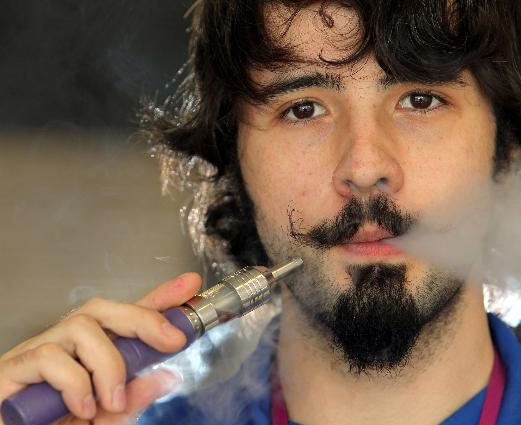The Health Claims Of E-Cigarettes Are Going Up In Smoke
Jasper Hamill, Contributor | Forbes
The sales pitch of electronic cigarette manufacturers seemed too good to be true. Could nicotine addicts around the world really get their fix whilst dodging the health risks of puffing away on cancer sticks?
Sadly for smokers and “vapers”, the answer is far from clear. Over the past week, new evidence has emerged which suggests that E-Cigarettes can be dangerous too – in some cases carrying higher amounts of certain toxins than the blazing tobacco of old.
Researchers at the University of South California have found that although E-Cigarettes are less harmful than ordinary smokes, the vapour emitted by the gadgets contains the toxic element chromium, which is not found in traditional cigarettes, as well as levels of nickel four times higher than in real tobacco. The electronic replacements also contain lead, zinc and other toxic metals, although in lower levels than cigarettes.

Two electronic cigarette models. (Photo credit: Wikipedia)
“Our results demonstrate that overall electronic cigarettes seem to be less harmful than regular cigarettes, but their elevated content of toxic metals such as nickel and chromium do raise concerns,” said Constantinos Sioutas, professor at the USC Viterbi School of Engineering.
There is a bit of good news for reforming smokers, as E-Cigarettes contain virtually no detectable polycyclic aromatic hydrocarbons, which are known to cause cancer. The researchers also said the metal particles were likely to come from the cartridge of the E-Cigarette devices, opening up the possibility that a change in the production process could eliminate the dangerous chemicals.
But this isn’t the only bit of bad news for vape inhalers. In the UK, the BBC reported that E-Cigarette liquid sold in the north east of England was found to contain a chemical called diacetyl, which is used to add butterscotch flavor to liquid tobacco.
Whilst this substance is harmless to eat, it is extremely dangerous to inhale. The chemical is known to cause a serious condition called popcorn lung, orbronchiolitis obliterans, an irreversible disease which scars the lung and makes it impossible to breathe properly. This illness has struck workers in popcorn factories, who are known to breathe in vast quantities of diacetyl, as well as ordinary people who eat a lot of popcorn.
Commenting on the report, Dr Graham Burns, a respiratory expert at Newcastle’s Royal Victoria Infirmary, said the illness is often “serious enough to warrant lung transplantation”.
VP, the firm which manufactured the cigarettes, immediately withdrew the liquid from sale, and Lynne White, head of retail distribution, admitted there were concerns about inhaling the liquid on a long-term basis.
“We are very sorry it has happened, we are investigating how it has happened,” she added.
“Because of the small amount the vaper would actually consume it was deemed in the short term there would be no health concerns.
“Long-term yes there could well be, however we decided it was a withdrawal rather than a recall of the product and that was based on Ecita’s (Electronic Cigarette Industry Trade Association) guidelines.”
But for many health-conscious people, the damage is likely to have been done. Once upon a time, the world didn’t know about the many terrible effects of cigarettes. It was only after a concerted campaign by scientists, doctors and activists that the risks began to be publicized and governments began to act on them. The long term implications of switching to E-Cigarettes have not yet been tested, so anyone using the devices has to ask themselves if they are willing to take the risk of becoming a guinea pig.

Marlboro Cigarettes (Photo credit: Wikipedia)
The World Health Organisation has issued a report advising that use of E-Cigarettes should be banned indoors and and all advertising stopped until the emerging industry produces “convincing supporting scientific evidence and obtains regulatory approval”.
Backing this call, the British Medical Association board of science deputy chair Ram Moorth said “tighter controls are needed to ensure their use does not undermine current tobacco control measures and reinforces the normalcy of smoking behaviour”.
‘There is a need for research to understand the health impacts of E-Cigarettes on both the user and bystanders, and it is vital that the sale of e-cigarettes is appropriately regulated to ensure they are not sold to minors, and are not aggressively marketed to young people as tobacco was in the past,” he continued.
“Any health claims must be substantiated by robust independent scientific evidence to ensure that the consumer is fully informed regarding potential benefits and risks of E-Cigarettes.”
Are you willing to take the chance and keep on vaping?
For more news and comment, follow me on Twitter @jasperhamill
http://www.forbes.com/sites/jasperhamill/2014/08/31/the-health-claims-of-e-cigarettes-are-going-up-in-smoke/





